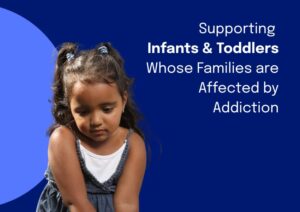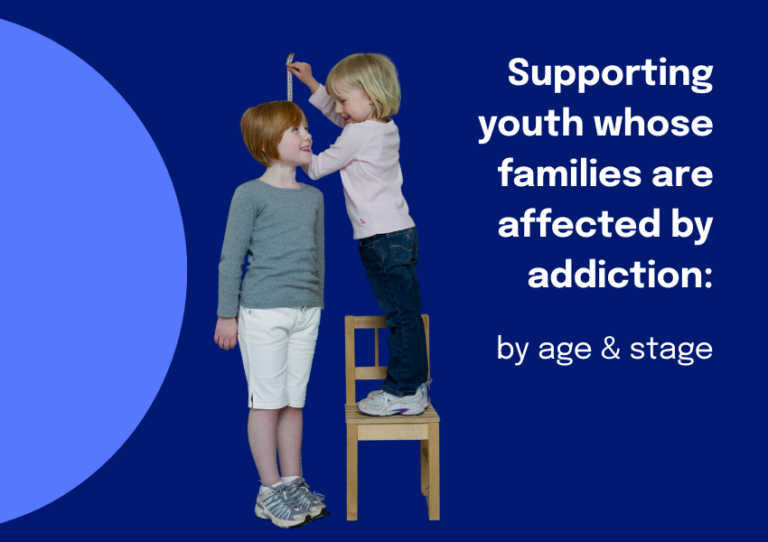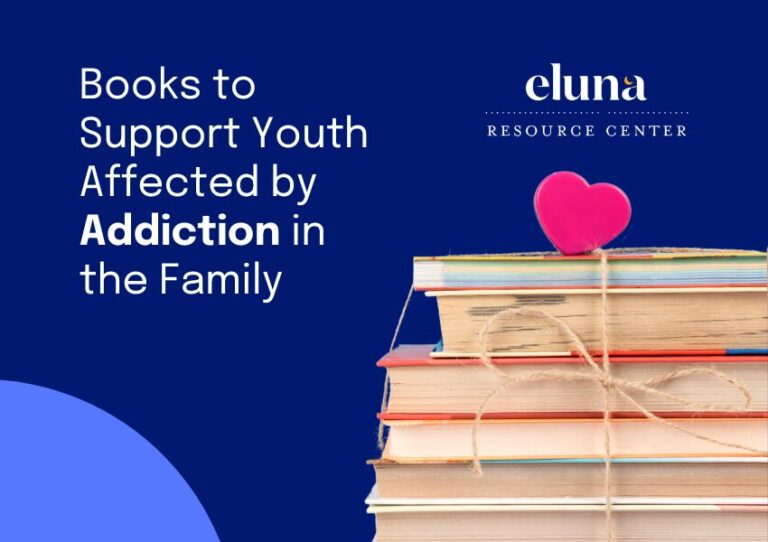Supporting Infants & Toddlers Whose Families are Affected by Addiction
 Navigating a family member’s substance use disorder can be challenging at any age. However, child development theory and research tell us that children process stressful events differently based on their unique developmental stage.
Navigating a family member’s substance use disorder can be challenging at any age. However, child development theory and research tell us that children process stressful events differently based on their unique developmental stage.
This article will review common trauma responses followed by tips for education, prevention, and mentoring for the age & stage: INFANTS & TODDLERS (ages 0-2)
Click here to access the full article on all Ages & Stages
This information is based on child development and psychology research, but it’s important to note that research often leaves out marginalized groups. Children from minority cultural or religious backgrounds may have different responses and needs in the face of traumatic events. Children with developmental disabilities may not match the typical expectations for their chronological age. Even children who are not diagnosed with a developmental disability may experience developmental regression as a trauma response. If you are reading this article with a specific young person in mind, remember that these general guidelines may not accurately reflect the experience of each individual.
Education
Infants and toddlers may not have reached the cognitive level necessary to understand the ins and outs of substance use disorder, but this is a great age to start teaching the building blocks of emotional literacy. Kids who can identify and communicate their emotions will be better equipped to manage the stress of a family member’s substance use disorder. You can model emotional literacy by labeling your and your child’s emotions and identifying coping strategies:
“It looks like you’re feeling sad that Mommy left! I can give you a hug to help you feel better.”
“I see that you’re angry – you don’t want your diaper changed! I have to change your diaper to keep you healthy and safe, but you can have your pacifier while we get changed.”
Prevention
Having a family history of substance use disorder puts youth at increased risk of their own substance misuse, but prevention strategies can change that. For infants & toddlers, consider the following:
- Keep substances out of sight and out of reach.
- Encourage good decision-making skills by offering positive choices (e.g. which clothes to wear, which book to read before bedtime)
- Model and talk about the things we do to take care of our bodies.
Possible trauma responses
Infants and toddlers are not yet able to verbalize challenging feelings related to a family member’s substance misuse, so it’s important to look for behavioral cues. Here are some possible trauma responses for this age group [Sources 1, 2, 3]:
- increased fussiness
- heightened startle response
- difficulty soothing
- changes in sleeping patterns
- changes in appetite
- digestive problems
- withdrawal
- clinginess
Mentoring & Support
Encourage healthy attachment to adult caregivers by responding to baby’s needs, engaging in play & conversation, and offering frequent opportunities for positive touch. Youth & families affected by the disease of addiction may also become isolated from communities of support. Here are some recommended programs that focus on caregiver support to help bridge and rebuild connections:
Caregiver Support Programs
- Parents of Addiction Loved Ones (PAL): Parents with an adult child dealing with substance use disorder involving either drugs or alcohol can find hope and support through Parents of Addicted Loved Ones (PAL). Meetings are available all over the country.
- CheckDEC: A free mobile app that immediately connects children, families, and professionals to substance abuse-related information, crisis helplines, drug and treatment information, supportive resources, and services within their local area. Brought to you by the National Alliance for Drug Endangered Children and Office for Victims of Crime
For more support options, jump to our hub of recommended programs & resources.
*Special thanks to Eluna volunteer, Mary Ann Gill, for supporting the development of this resource!

